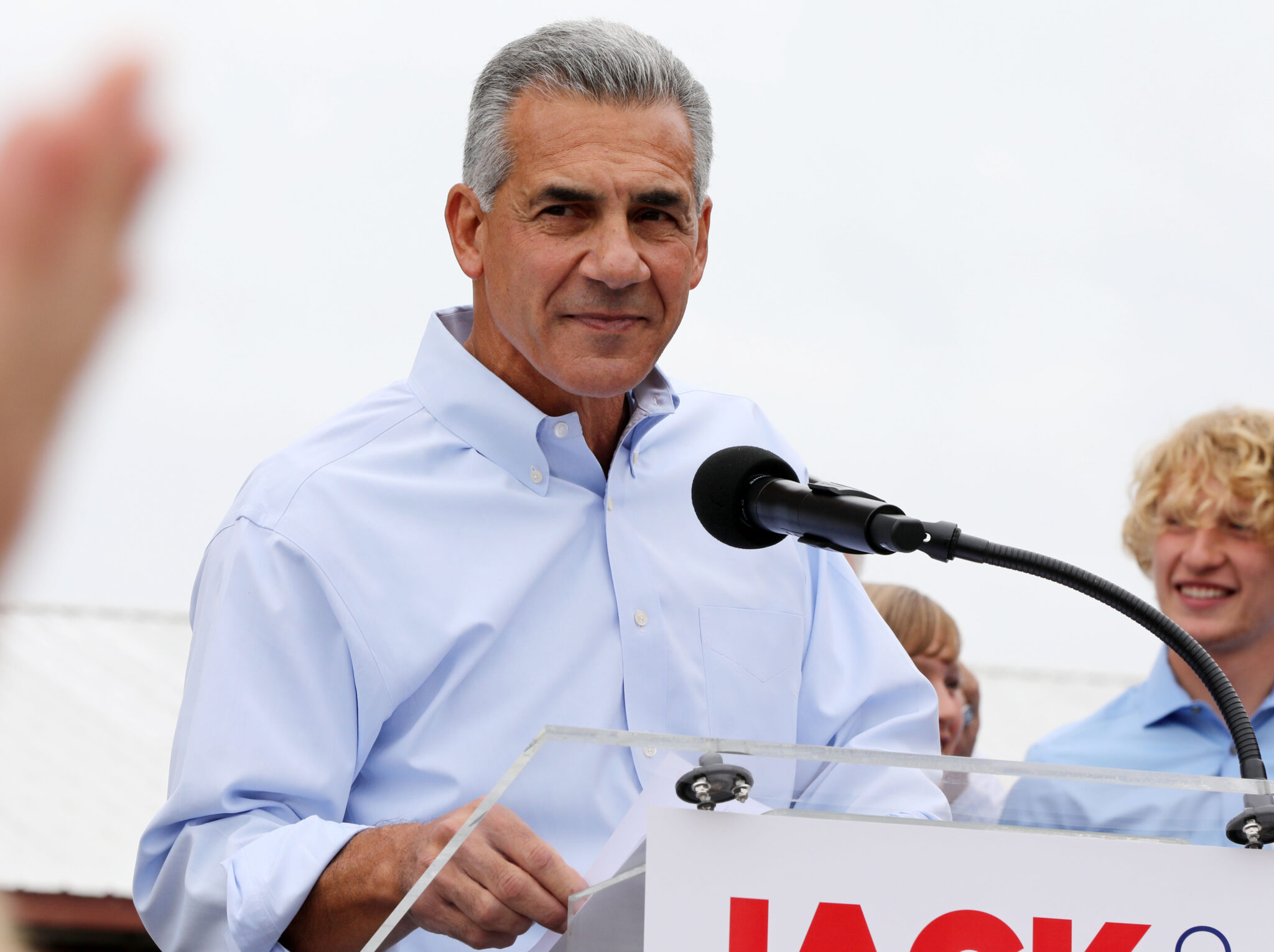Jack Ciattarelli, a Republican candidate for New Jersey governor (Amanda Brown/New Jersey Monitor)
Although Democrats tend to have an advantage in New Jersey, the state’s margins in recent elections have been closer than normal.
In his first two bids for the presidency, Donald Trump lost New Jersey by 14.1 points in 2016 and 15.8 points in 2020. Then, Republicans came close to winning the state’s governorship in 2021, when Republican Jack Ciattarelli lost to Democratic Governor Phil Murphy by only 2.2 points. And in his third run for president in 2024, Trump lost New Jersey by only 5.9 points – the closest margin for a Republican presidential candidate in New Jersey since George H.W. Bush lost the state by 2.4 points in 1992. The 2021 and 2024 election results shook long-held assumptions about New Jersey’s political leanings, and Dr. Tina Zappile of Stockton University now approaches the state’s 2025 gubernatorial election with an understanding that “nothing is guaranteed.”
Top Issues for New Jersey Voters
As he nears the end of his final term, Murphy holds a 40% approval rating among New Jersey voters, according to a poll conducted by Emerson College in May. The poll also shows the economy as the top issue for 45% of New Jersey voters, with housing affordability (12%), threats to democracy (11%), and immigration policy (9%) also in focus.
Who’s Running for Governor
The New Jersey gubernatorial primaries are scheduled to take place on June 10th. In the Democratic primary, Representative Mikie Sherrill is leading with 17% support, according to a late April poll from Rutgers’ Eagleton Institute. Jersey City Mayor Steven Fulop follows closely behind, polling at 12%. Other notable Democratic candidates include Representative Josh Gottheimer and Newark Mayor Ras Baraka, who are both polling at 9%.
In the Republican primary, Ciattarelli is seeking a second chance at the governorship and leads with 42% support. Former radio host Bill Spadea is the second highest polling Republican candidate at 12% support. Followed by state Senator Jon Bramnick at 4%.
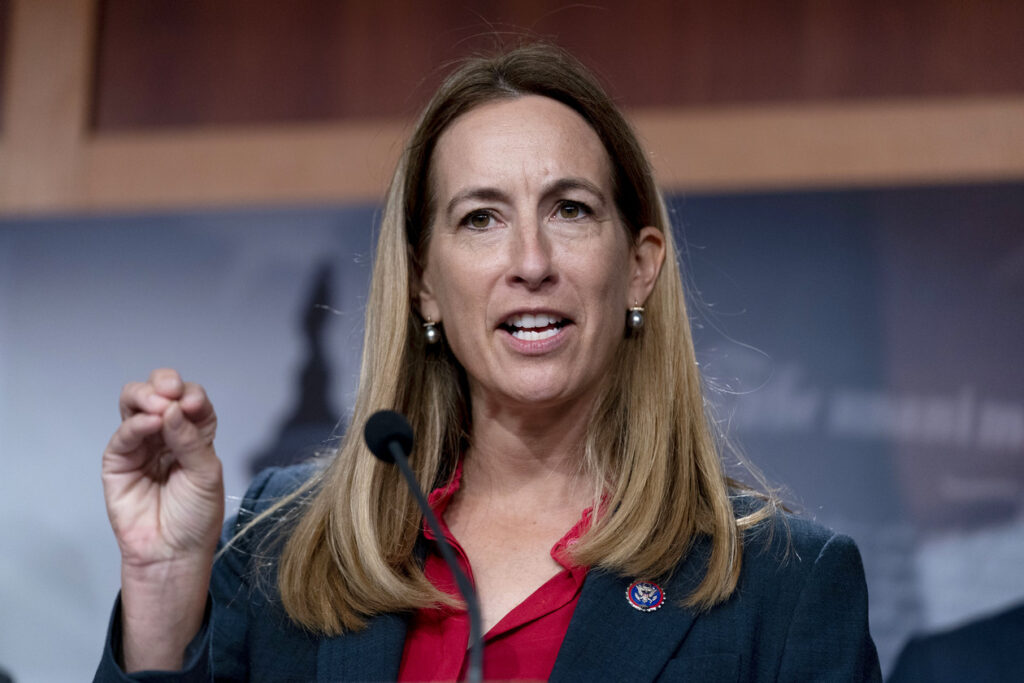
Who is Mikie Sherrill, and what are her positions?
Sherrill, the only female candidate in the race, is a former Navy helicopter pilot representing New Jersey’s 11th congressional district, which comprises suburban and exurban portions of Essex, Morris, and Passaic counties. In the 2024 election, Sherrill outperformed Democratic presidential nominee Kamala Harris by 6 points in the district.
During her current term in Congress, Sherrill introduced legislation to “protect Americans’ health and retirement benefits from DOGE cuts.”
Sherrill claims that her focus as governor would be making New Jersey more affordable, stating that “from housing and grocery prices to child care and health care, I will work constantly as your governor to bring down costs for families.” She plans to lower housing costs by “increasing access to loans and tax credits to incentivize the strategic development and redevelopment of new housing,” and by opposing “any budget diversions from the New Jersey Affordable Housing Trust Fund.” Sherrill also vows to “strengthen first-time homebuyer assistance programs to expand access to homeownership for young families and people looking to make New Jersey their home.” In addition, she hopes to provide tax relief by “closing tax loopholes and cracking down on ultra-wealthy and corporate tax cheats who get away without paying their fair share.” To provide further tax relief, Sherrill plans to address “rising health care costs that counties and municipalities must pay” through an audit of the State Health Benefits Program.
Some critics, like Jon Levine of the Washington Free Beacon, have raised concerns about Sherrill’s stock trading practices. Levine points out that in December 2021, Sherrill “paid a $400 fine after failing to disclose up to $350,000 in stock sales.”
So far, Sherrill has raised $9.16 million for her campaign and has received several endorsements, including from former Representative Tom Malinowski and the National Women’s Political Caucus.
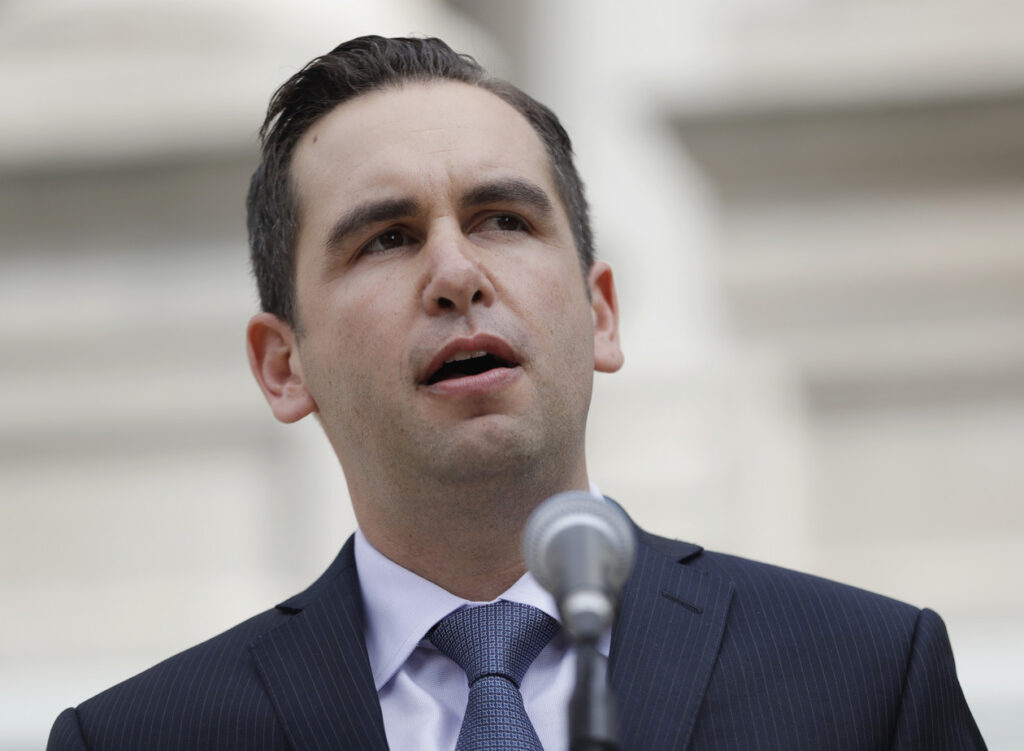
Who is Steven Fulop, and what are his positions?
Fulop has served as the mayor of Jersey City since 2013, overseeing a period marked by stable municipal taxes and significant development beyond the city’s waterfront.
During his campaign, Fulop has emphasized his policy priorities of affordability, transportation, and education. To combat “income disparity” and promote “tax fairness,” Fulop says he “would revise the state income tax to add brackets for higher-income residents, including new rates on earners over $2 million, $5 million, and $10 million in income.” He argues that this will create “revenue for public investments” and “make New Jersey more affordable.” Fulop has also promised to challenge New York’s “Convenience of the Employer Rule,” which makes nonresident employees subject to New York income tax if they choose to work remotely for their own convenience. Since 38% of New York City’s non-resident workforce commutes from New Jersey, this would impact many New Jersey residents.
In terms of transportation, Fulop says he will extend the Corporation Business Tax surcharge (CBT) to provide “a dedicated revenue stream” for New Jersey Transit (NJT). Fulop also supports congestion pricing on those entering New Jersey from New York to fund “Light Rail expansion and to expand PATH service.”
Lastly, Fulop strives to address “school segregation” by revising school funding to “incentivize school districts to proactively seek diversity.”
Fulop has faced scrutiny for receiving over $6.8 million in campaign funding from donors involved in real estate and development. Jersey City Times reporter Alexis McDonell has alleged these donors created a conflict of interest during his time as mayor. One example raised by McDonell is Fulop’s support for the “takeover” of Jersey City’s Christ Hospital in 2012 by a group of donors who gave over $1.5 million to his campaigns.
Fulop has been endorsed by several organizations including the College Democrats of New Jersey and the Amalgamated Transit Union International. Overall, his campaign has raised $8.98 million.
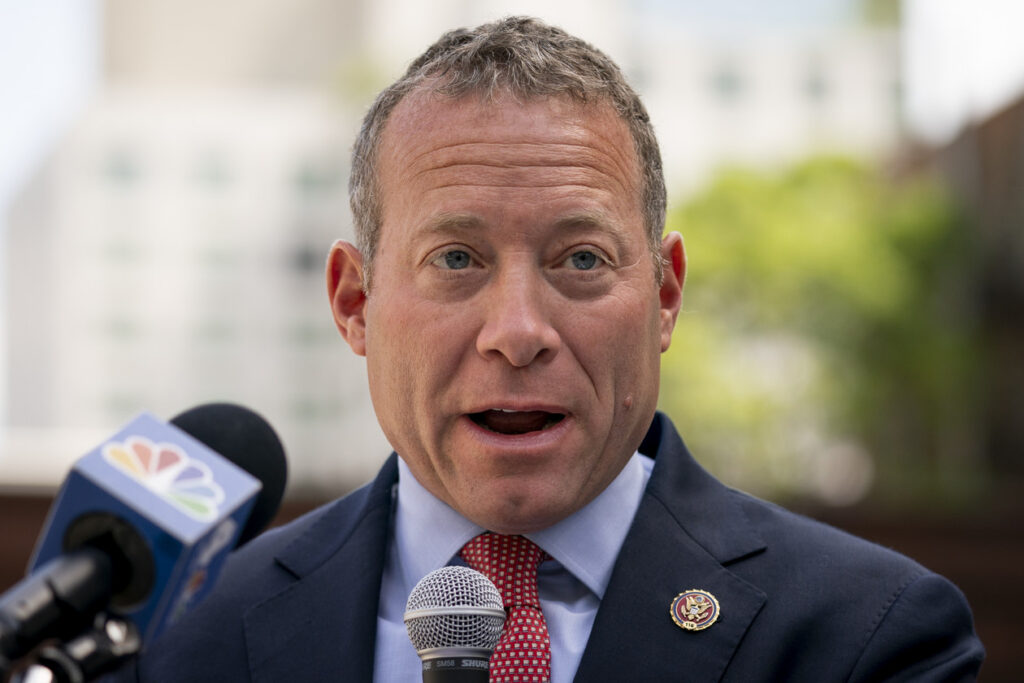
Who is Josh Gottheimer, and what are his positions?
Since 2017, Josh Gottheimer has represented New Jersey’s Fifth Congressional District, which comprises most of Bergen County and parts of Passaic and Sussex counties. Prior to his career in Congress, Gottheimer served as one of the youngest presidential speechwriters in American history under the Clinton administration.
During his time in Congress, Gottheimer co-chaired the Problem Solvers Caucus, a group of Republican and Democratic U.S. House members that promote bipartisan lawmaking.
Gottheimer’s campaign has emphasized resistance against the Trump administration. The congressman has spoken against the president’s tariffs on imports, saying, “Trump’s tariffs are hurting families, seniors, and small businesses—making Jersey’s affordability crisis even worse.” To offset the effects of tariffs levied by the federal government, Gottheimer has stated he will seek to exempt New Jersey products from potential reciprocal tariffs. To raise awareness about the effects of Trump’s tariff policy, Gottheimer has promised to require utility companies to include a “Trump Tariff” indicator on bills.
To lower the cost of living in New Jersey, Gottheimer has vowed to cut property taxes by 15% and implement a “Family Tax Credit” for “middle class” households with children or senior parents. Additionally, he plans to attract families and jobs to New Jersey by allowing new residents to pay property taxes at the same rate they paid in their previous state for their first five years in the state.
In 2019, Gottheimer faced controversy when several of his former staffers criticized him for curating a toxic work environment during their tenure. Gottheimer has also been accused of an incident in 2017 when he allegedly punched the roof of a staffer’s car after learning that an unapproved reporter was present at a town meeting in Teaneck, New Jersey. According to Ryan Grimm of The Intercept, those involved in the incident asked to remain anonymous out of fear of retaliation from Gottheimer.
Gottheimer’s gubernatorial campaign has amassed $9.07 million in fundraising and received endorsements from a variety of state and local officials, many of whom are from Bergen County.
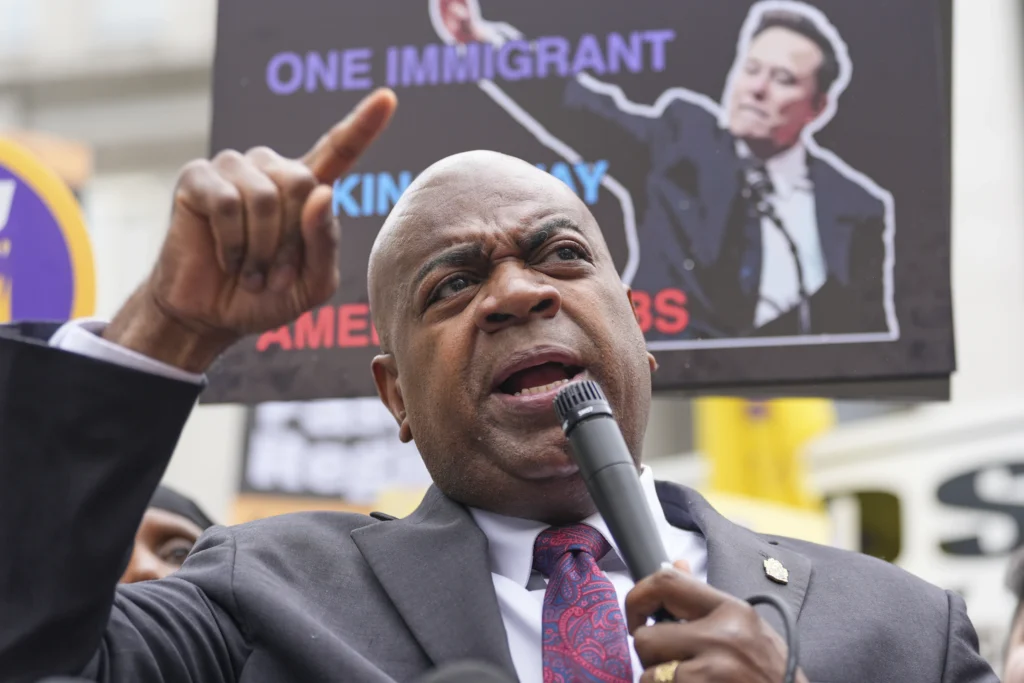
Who is Ras Baraka, and what are his positions?
Baraka has served as the mayor of Newark since 2014, earning recognition as “one of the most progressive Democrats in New Jersey” from POLITICO’s Dustin Racioppi.
Baraka plans to implement state budget reforms by reinstating the Estate Tax on estates valued over $1 million, introducing a special sales tax on luxury goods, and reducing taxes to a rate of 1.4% for low- and middle-income families making less than $90,000. Baraka’s economic plans also include raising the minimum wage to a “living wage”, loosening liquor licensing regulations for small businesses, offering tax incentives to businesses that conduct workforce training in underserved communities, and guaranteeing a fair allocation of state resources to a wide range of communities.
Baraka’s environmental policies include reinstating the state sales tax exemption for electric vehicles – which was abandoned in 2024 – and converting NJ Transit vehicles to cleaner, low-emission alternatives.
Baraka recently made headlines for being arrested on May 9th on charges he trespassed a privately run immigration detention center in Newark. Baraka was accompanied by Representative LaMonica McIver, who was charged with assaulting and impeding law enforcement during the same incident. Baraka’s charges have been dismissed, and he continues to push onward with his campaign for governor. Despite recent controversies, Baraka has raised $5.43 million for his campaign and received endorsements from McIver and Representative Bonnie Watson Coleman.

Who is Jack Ciattarelli, and what are his positions?
Ciattarelli has held various government positions since 1990, serving on the Raritan Borough Council, the Somerset County Freeholder Board, and the State Assembly. President Trump endorsed Ciattarelli on May 12th, writing on Truth Social: “Jack Ciattarelli is a WINNER, and has my Complete and Total Endorsement – HE WILL NOT LET YOU DOWN. MAKE AMERICA GREAT AGAIN, ELECT JACK CIATTARELLI!.” However, Ciattarelli said in 2015 that Trump was “not fit” for the presidency, a comment that is being used against him by other gubernatorial candidates.
To address affordability in New Jersey, Ciattarelli has said he “will reduce state spending by 30%, keep future budget growth to no more than the rate of inflation, and aggressively use the line-item veto pen to eliminate and prevent waste.” Ciattarelli has also promised to reduce income taxes for all New Jerseyans, though he has not provided an exact tax rate, and to refund the in-state vs. out-of-state tuition difference for graduates who live and work in New Jersey for at least three years after college. Alongside these proposals, Ciattarelli has also called for a 30% reduction in state spending and to limit future budget growth to less than the rate of inflation.
To combat illegal immigration, Ciattarelli has promised to repeal the Immigrant Trust Directive, which limits the types of information that New Jersey state and local law enforcement officers may provide to federal immigration authorities, including ICE. Ciattarelli has also said he will prohibit cities and towns from declaring themselves Sanctuary Cities.
On abortion rights, Ciattarelli has suggested prohibiting abortion after 20 weeks. He also supports mandatory parental notification when a minor seeks to get an abortion, reasoning that “the fact that a 16-year-old in New Jersey needs her parents’ permission to get her ears pierced, but not to get an abortion is absurd.”
Ciattarelli has criticized the Murphy administration’s affordable housing policy for “gobbling up open space, chasing wildlife from its habitat, increasing pollution from more idling cars on already congested roads, leading to more local flooding from stormwater management issues, and driving up property taxes due to endless legal fees and additional local services.” In contrast to Murphy, Ciattarelli has promoted a “regional approach” to housing policy that is focused on “driving population growth to transit hubs and urban centers” to boost local economies.
Ciattarelli has raised more funds than any other Republican candidate, amassing $8.8 million for his campaign.

Who is Bill Spadea, and what are his policies?
Bill Spadea is a former radio host and political figure who ran for U.S. Representative in 2004 as the Republican candidate for New Jersey’s 12th district. Despite embarking on a 22-day walk across the entire district, Spadea was defeated by the Democratic nominee Rush Holt Jr. in 2004. Spadea became a conservative activist in the 1990s when he served as chair of the College Republican National Committee. At the time, he criticized then-President George H.W. Bush for being “not as conservative as we would like.”
Spadea expressed disappointment over not receiving Trump’s endorsement, claiming that the president “endorsed a poll, not a person” by choosing Ciattarelli. Spadea has still received endorsements from local political figures across New Jersey, including seven mayors from Ocean County alone. Former state Senator Ed Durr, who ended his campaign for governor in March, has also thrown his support behind Spadea.
Spadea has described himself as “anti-homosexual,” and is a pro-life advocate who favors cutting funding for Planned Parenthood. Spadea also intends to reform the education system in New Jersey by ending gender studies and DEI content in schools.
Spadea is a staunch advocate of the 2nd Amendment, and vows to “roll back” restrictions placed on firearm possession. He has criticized reciprocity laws – which allow states to recognize each other’s concealed carry permits – saying, “It’s a money grab and it’s a stalling tactic by left-wing anti-Second Amendment politicians who want to slow this legal, constitutional process.” He also hopes to lower crime in New Jersey by ending bail reform and filling judicial vacancies to reduce the wait time between arrest and trial.
Spadea supports President Trump’s tariffs, writing on X, “the tariffs will enable us to become manufacturing independent.” He also hopes to improve New Jersey’s economy by removing “about a thousand regulations” and reducing income taxes.
Spadea has faced scrutiny from critics, including Matt Friedman of Politico, for making bigoted remarks on his radio show. Friedman highlights Spadea’s defense of Sal Bonaccorso, the former mayor of Clark, New Jersey, who was recorded making racist remarks about Black Americans. Following the controversy, Spadea defended Bonaccorso on his radio show, saying, “You can always tell the guy who’s doing the great job because they come at him and pick on things that have been said.” Friedman also highlights Spadea’s defense of Boston Red Sox outfielder Jared Duran, who was caught calling a fan a homophobic slur. Spadea covered the controversy on his talk show, saying, “And what made it worse is the idiot Red Sox organization donated his salary to some LGBTQ alphabet soup kids organization.” One of Spadea’s opponents in the primary, Jon Bramnick, has echoed these criticisms, stating, “He appeals to a very limited number of people, and he gets a lot of attention, and he’s the reason the Republicans lose. The swing voters, the moderate Republicans and moderate Democrats, are not voting for Bill Spadea.”
As of May, Spadea had raised $4.27 million, with $1.91 million left on hand.

Who is Jon Bramnick, and what are his policies?
Bramnick represents New Jersey’s 21st legislative district in the state Senate, which comprises parts of Morris, Somerset, Union, and Middlesex counties. Before the state Senate, Bramnick served in the General Assembly for almost two decades, holding the title of minority leader for half of that time.
Bramnick’s campaign website boasts that as a state legislator, he “fought to lower the cost of living, make our communities safer, and to end the construction of thousands of court-mandated housing units in communities around the state.”
Bramnick has been clear in his disapproval of Trump, stating that he would have dropped out of the race for governor if Trump had won New Jersey in the presidential election. When asked about Trump’s pardon of the January 6th group, Bramnick stated, “Republicans are proud to support law enforcement, but if we are to remain consistent in that message, we cannot condone any violence against police – especially through presidential pardons.”
As governor, Bramnick hopes to make New Jersey more affordable by cutting income taxes through “simplifying brackets and adjusting for inflation” and requiring excess state funds to be refunded to property taxpayers.
Bramnick believes technology and innovation are the driving forces for the future of New Jersey’s economy. To support these sectors, Bramnick plans on creating a more streamlined, tech-enabled process for all business owners, starting with the appointment of a “business czar” to help navigate regulatory hurdles.
Bramnick differs from his GOP rivals on abortion, as he has stated that he is pro-choice, despite his “strong feelings” against late-term abortions. Lastly, to stop overdevelopment and overcrowding, Bramnick promises to overturn the recently enacted housing mandates passed by the state legislature. In total, Bramnick has raised $4.8 million for his campaign. He has received endorsements from former Representatives Leonard Lance, John Boehner, and Rodney Frelinghuysen, as well as the Philadelphia Inquirer.
